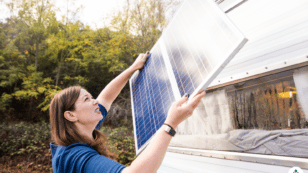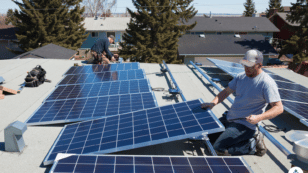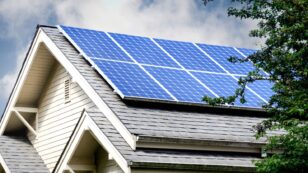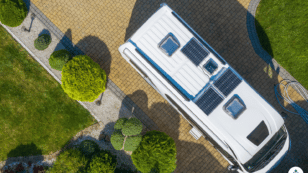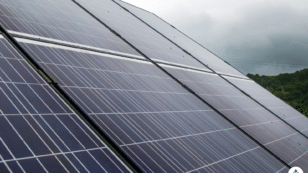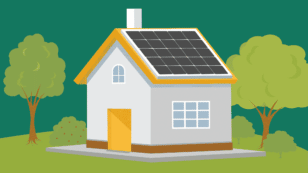
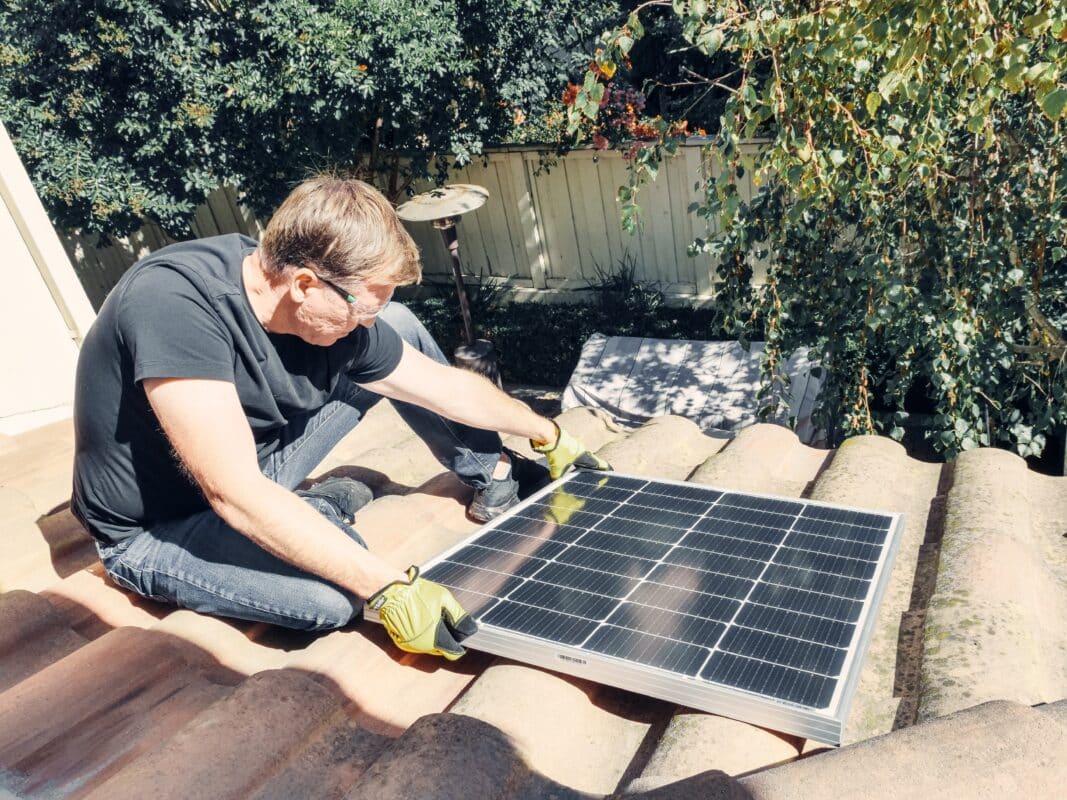
DIY Solar Panels Guide (What You Need to Know in 2024)
Here’s what we’ll cover in this guide:
- Are DIY solar panels any cheaper?
- Can you build your own solar panels?
- Are DIY solar panels worth the hassle (pros/cons)?
Each product and or company featured here has been independently selected by the writer. You can learn more about our review methodology here. If you make a purchase using the links included, we may earn commission.
DIY Solar Energy System: Considering the Cost Savings
To begin with, let’s talk dollars and cents. Based on the cost of DIY solar panel kits from companies like Renege and Grape Solar, the average cost per 400 watts (W) is between $500 and $600. Since the average U.S. homeowner needs a 9 kilowatt (kW) system to offset their electric bills, that puts the total cost for the equipment at between $11,250 and $13,500. In other words, that’s what you’ll pay for your actual solar components, before taking into account rebates and other tax incentives.
By contrast, the average cost of having your installation done by one of the top solar companies averages around $20,979— and that’s after tax credit incentives and rebates. In other words, choosing DIY solar can definitely be less expensive — around $7,000 less expensive, to be exact.
But why is this, exactly? When you go with a professional installation company, a big chunk of your overall cost is going to the design of your new solar power system, the higher efficiency and more durable solar panels and labor costs. By eliminating those three expenses, you can shave several thousand dollars off the total price tag.
The flip side is that professional installers are generally able to buy solar panels, solar inverters and the best solar batteries from wholesale distributors, which means they can collect and access a wider range of products and get them for lower prices than what’s available to the general public. In most cases, the high-end panels made by companies like Maxeon, Panasonic, and QCells aren’t even available to homeowners and can only be purchased by certified solar installers.
In thinking about the cost of solar panels, it’s also important to factor in the longevity of your system. After all, $13,500 is still a steep investment, so how much value can you expect in the long run?
In general, a residential renewable energy system built with the best and most efficient panels for homes should last anywhere from 25 to 35 years. Average that out to 30 years, and the cost of installation can be annualized to around $699. And that might be worth the higher investment. Let’s dive a little deeper.

SunPower

Nationwide Service
Average cost
Pros
- Most efficient panels on the market
- National coverage
- Cradle to Cradle sustainability certification
- Great warranty coverage
Cons
- Expensive
- Customer service varies by local dealer
SunPower designs and installs industry-leading residential solar and storage solutions across all 50 states. With a storied history of innovation dating back to 1985, no other company on this list can match SunPower’s experience and expertise.
SunPower earns its position as the top national installer on our list for a handful of reasons: It installs the most efficient solar technology on the residential market, offers the most expansive service area and backs its installations with a warranty well above the industry standard. All the while, SunPower pioneers sustainability efforts within the industry.
If that weren’t enough, SunPower systems come packaged with products all manufactured in-house by its sister company, Maxeon. This means that your panels, solar cells, inverters, battery and EV chargers are designed to work together and are all covered under the same warranty.
SunPower’s biggest downside? Its high-efficiency panels are considerably more expensive than most of its competitors’ products. However, its powerful panels are workhorses that make up for the initial cost with more backend production (think about this like spending more money for a car that gets more miles per gallon).
Facts and Figures: SunPower
| EcoWatch Rating |
|---|
| Better Business Bureau (BBB) Rating |
| Year Founded |
| Average Cost ($-$$$$$) |
| Solar Services |
| Brands of Solar Equipment Offered |
| Warranty Coverage |
| 5 |
| A+ |
| 1985 |
| $$$$ |
| Solar Panels, Solar Batteries, EV Chargers, System Monitoring |
| SunPower Panels |
| 25-year all-inclusive warranty |

Blue Raven Solar

Regional Service
Average cost
Pros
- Industry-leading in-house financing
- Competitive pricing
- Excellent reputation
Cons
- Doesn't offer solar batteries (coming 2022)
We like Blue Raven Solar because it understands that, for most homeowners, the cost of solar presents the biggest barrier to entry.
For that reason, Blue Raven Solar developed an innovative solar financing plan that offers in-house, flexible, zero-money-down options. The results speak for themselves, as Blue Raven Solar is now one of the fastest-growing solar companies in the nation and was recently acquired by SunPower. Its BluePower Plus+ plan (exclusive to Blue Raven) mimics the flexible structure of a lease while still providing the greatest benefits of owning your system.
Eligible homeowners enjoy 18 months of solar power before having to pay their first bill. When coupled with the federal solar investment tax credit (ITC), the initial energy savings can offset more than a third of the overall cost of a system before requiring a dollar down.
In contrast, other installers can only offer similar financing through solar leases, PPAs or third-party providers (such as Mosaic or Sunlight). Third-party loan providers can complicate the process, while opting for a loan or PPA will disqualify you from some of solar’s biggest benefits (additional property value, federal solar tax credit and local solar incentives).
Facts and Figures: Blue Raven Solar
| EcoWatch Rating |
|---|
| Better Business Bureau (BBB) Rating |
| Year Founded |
| Average Cost ($-$$$$$) |
| Solar Services |
| Brands of Solar Equipment Offered |
| Warranty Coverage |
| 4.5 |
| A+ |
| 2014 |
| $$ |
| Solar Panels, System Monitoring |
| Trina Solar, Canadian Solar, SolarEdge, Silfab, SunPower |
| 25-year manufacturer warranty; 10-year workmanship warranty, 2-year production guarantee |
Pros and Cons of DIY Solar Panel Installation
Beyond price, there are a number of DIY solar energy pros and cons to consider before attempting to create your own solar panel system.
Advantages of DIY Solar Panel Kits
Here are a few of the major benefits of home DIY solar:
- Cost savings: The most obvious advantage of DIY solar panels is the cost savings they offer. If you go for a DIY project, you’ll be racking up the savings — both on your electric bill and solar system installation. By eliminating the need for design and labor expenses, you can potentially save a decent chunk of change on your residential solar energy system.
- DIY system design: Another main reason to consider DIY solar panels is that you have total control over the design of your system. So, if you’re an amateur solar enthusiast, highly rated electrician or DIYer and have a very specific vision for how you want your photovoltaic cells to be assembled in your solar array, going the do-it-yourself route can give users free rein to do as they please.
- Easing into solar: A DIY solar panel can also be a good option for those who are looking to start small, with a more modest home solar project. For example, maybe you’re not looking to go completely off-grid just yet, but want to try out a couple of panels to see how much they offset your current energy costs. Or you want to install solar on a shed or another outbuilding to give it a try. The DIY route can be very cost-effective, especially if you have low energy needs.
If you’re ready to learn more about how a certified installer can help you build a solar system, follow the links below.
Disadvantages of DIY Solar Panels
While there are notable perks to the DIY solar approach, there are also some drawbacks worth noting:
- Product availability: One of the primary disadvantages of DIY solar panels is that you’re much more limited in the range of products available to you. As mentioned, professional installers have direct access to the most efficient solar panels from leading distributors. As a consumer, your selections are going to be significantly more limited. DIY panels are often polycrystalline and thin-film panels, which are less durable and less efficient than the mono crystalline panels, which professional installers almost always use. In other words, there may be top-of-the-line solar panels that you can only get if you go through a professional installer.
- Potential safety hazards: DIY solar installation can be dangerous. To do it right, you need to be pretty knowledgeable about electrical systems, equipment and how solar panels work. Without that know-how, you run the risk of loose connections and other wiring problems. These issues can be real fire hazards, jeopardizing the safety of yourself, your home and your family. In some areas, you might still need to hire an electrician to do some or all of the wiring for your system, meaning you might not save as much as you initially think you will.
- Efficiency issues: Professional solar installers have the knowledge needed to design a solar system that helps you achieve your energy goals. An installer can recommend the exact types of solar panels, a roof mount, inverters and battery banks you need, as well as the proper placement of those components. Without their expertise, you may wind up with a system that isn’t as optimized or as efficient as it could be. That means that, while the average professional system will pay for itself and then save around $31,513 after that point, your DIY kit might not save you anything.
- Legality: In some municipalities, a DIY solar panel may actually be illegal. You should always check with your local zoning board to ensure that you’re even permitted to do it yourself, especially if you’re planning a grid-tied system. At the very least, you’ll need an inspection and permission from your electric company to connect to the grid.
- Navigating savings opportunities: Professional installers can help you claim all of the rebates and tax incentives you’re eligible for. Identifying and securing these opportunities on your own can sometimes be a bit of a hassle. In some cases, rebates and credits might not be available for DIY equipment. For example, there are stipulations that need to be met in order to take the federal tax credit, which means you could miss out on an average potential savings of $8,991 by going the DIY route.
The bottom line: Installing your own complete residential solar system at home can yield some notable advantages, including cost savings, but that doesn’t always mean it’s the wisest option. Due to the safety hazards, limited product options and lack of real solar expertise, many homeowners will conclude that DIY solar system installation just isn’t worth it.
Deciding Whether A DIY Solar Panel System Is Right for You
So after weighing the pros and cons of DIY solar, what are the next steps? One thing to keep in mind is that many solar installers offer no-obligation estimates. Even if you’re leaning toward a DIY solar system, there’s no harm in considering your options and learning a bit more about the solar installation process.
And if you do decide to go with DIY, one important step is to check local zoning ordinances to be certain you can legally install solar panels. From there, start researching different solar panels, batteries and inverters, while also ensuring you have the right baseline knowledge regarding electrical work.
If you’re ready to learn more about how a certified installer can help you build a solar system, follow the links below.
The cost information presented in this article is derived from a comprehensive analysis, incorporating data from multiple industry sources. The average cost per watt per state was calculated based on figures from Consumer Affairs, Energy Sage, and Berkeley Lab’s Electricity Markets & Policy Department. Additionally, monthly energy consumption and the average monthly cost of electricity were sourced from the U.S. Energy Information Administration, ensuring a well-rounded and accurate representation of the information presented.
Comparing authorized solar partners
-
- Most efficient panels on the market
- National coverage
- Cradle to Cradle sustainability certification
- Great warranty coverage
- Expensive
- Customer service varies by local dealer
A+Best National Provider1985SunPower Panels25-year all-inclusive warranty
Having trouble deciding? Click below and use our process to receive multiple quotes instead:

 233k
233k  41k
41k  Subscribe
Subscribe 


